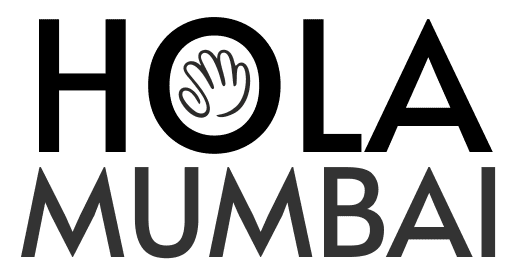New Delhi [India], November 25: The global pharmaceutical landscape is changing rapidly, and emerging economies are taking bold steps to strengthen manufacturing capabilities and ensure long-term resilience in medicine supply. EthiopiaN Government is on a strategic mission to India, a country with one of the world’s most robust pharmaceutical ecosystems, to gain insights, share perspectives, and open new pathways for investment. This mission is an important step towards building Ethiopia’s own strong and sustainable pharmaceutical industry while fostering collaboration with one of the sector’s global leaders.

Mission Objectives: Learning, Connecting, and Growing Together
The upcoming mission is built around four key priorities:
A. Policy Design & Implementation: aim to explore India’s long-term procurement policies, understanding their structure, objectives, and operational mechanisms in order to see how similar frameworks can support Ethiopia’s domestic growth and supply chain stability.
B. Strengthening Domestic Manufacturing: to study how India expanded Pharmaceutical production through multi-year contracts and local value addition requirements. These proven strategies will guide Ethiopia in designing policies that reduce import dependency and foster industrial capacity.
C. Investment Outreach & Promotion: to showcase Ethiopia’s emerging pharmaceutical sector to potential partners and investors. With our strategic location, incentives for manufacturers, and growing local demand, Ethiopia presents a compelling opportunity for collaboration.
D. Expected Outcomes: to gather actionable lessons, initiate partnerships, and lay the groundwork for investments that will drive Ethiopia’s pharmaceutical manufacturing growth.
E. Strategic Growth Drivers: The delegation aims to gain a deep understanding of India’s off-take arrangements, forward-thinking policy frameworks, and the role of public-private partnerships in building industry strength.
F. Best Practices for Ethiopia: The delegation will identify policy tools, procurement strategies, and manufacturing incentives that can be adapted to Ethiopia’s own context for a sustainable and competitive pharmaceutical sector.
Investment Promotion Goals
Through this mission, the delegation aims to:
- Raise Awareness: Increase visibility of Ethiopia’s investment potential among Indian pharmaceutical manufacturers and investors.
- Build Relationships: Develop strong connections with industry leaders and stakeholders who can work with Ethiopia on both capacity building and market expansion.
- Unlock Partnerships: Identify opportunities for joint ventures, technology transfer, and direct investment in Ethiopia’s manufacturing facilities.
The Road Ahead
This mission will be a pivotal moment in Ethiopia’s journey toward self-reliance in pharmaceutical production and industry growth. By learning from India’s achievements, adapting proven strategies, and fostering cross-border collaboration, Ethiopia can position itself as a competitive player in Africa’s pharmaceutical market. The vision is to deliver quality medicines affordably and sustainably, meeting local needs while contributing to stronger healthcare systems across the continent.

Executed Agenda and next steps:
During the Ethiopian Delegation’s visit to India, a comprehensive agenda was executed across four major Indian cities: Delhi, Mumbai, Pune, and Hyderabad. In Delhi, meetings were held with the Federation of Indian Export Organizations (FIEO), UNOPS, Biotechnology Industry Research Assistance Council (BIRAC) as well as the National Biopharma Mission, Drug Controller General of India (DCGI), Federation of Indian Chambers of Commerce and Industry (FICCI), Indian Pharmacopoeia Commission, Central Medical Services Society (CMSS), multiple other private sector parties. In Mumbai, the delegation met with Maharashtra FDA and participated in a pharmaceutical investor engagement organized with the Pharmaceutical Export Promotion Council of India (Pharmaexcil). The delegation visited Serum Institute of India in Pune, to understand vaccine development processes and explore partnership opportunities. In Hyderabad, the delegation held one-on-one bilateral meetings with private players, engaged with Pharmaexcil members, and undertook pharma manufacturing site visits. They also met with the Telangana State Medical Services Infrastructure Development Corporation (TMSIDC), Telangana Drug Controller’s Office, and Telangana Department of Life Sciences.

Next steps will focus on deepening the partnerships and technical exchanges initiated during these engagements. FIEO has committed to sending a business and investment delegation to Ethiopia before the end of the year, including facilitating virtual connections with Indian suppliers across identified pharmaceutical and medical product areas. Multiple Indian regulatory and procurement agencies including DCGI, CMSS, and TMSIDC expressed willingness to continue technical dialogue on regulatory strengthening, procurement digitization, and quality assurance systems. Several private-sector entities showed interest in exploring investment opportunities, PPP models, training collaborations, and capacity-building partnerships in Ethiopia’s health and pharmaceutical sectors. The Ethiopian Ministry of Health, Ethiopia Investment Commission and World Bank Group teams will continue the engagements started during the mission, will facilitate targeted B2B linkages, support regulatory and institutional capacity strengthening, and will jointly help structure feasible market-creating investment opportunities based on the insights gathered during visit to India.
Ethiopia offers one of the most attractive incentive packages in Africa for pharmaceutical investors, combining robust fiscal benefits with strong regulatory progress and long-term market certainty. Companies investing in pharma manufacturing can access corporate income tax exemptions of up to six years for input preparation and five years for packaging, alongside generous foreign exchange retention privileges – 100% within SEZs and 50% for exporters. Investors gaining the status of local producers also benefit from price preference policies and 30% prepayment facilities. Beyond fiscal incentives, Ethiopia provides a compelling enabling environment: a long-term procurement guarantee of up to seven years, procurement through a centralized national system that covers nearly 70% of the market, and a regulator certified at WHO Maturity Level 3, ensuring high-quality oversight. Coupled with the advantages of operating within the Kilinto Special Economic Zone, these incentives create a unique stable, scalable, and investor-friendly environment for pharmaceutical manufacturing, sale within the country and export around the continent.
If you have any objection to this press release content, kindly contact pr.error.rectification@gmail.com to notify us. We will respond and rectify the situation in the next 24 hours.

